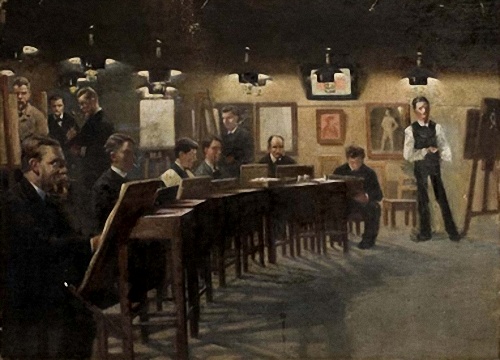Pedagogy, Provocation and Paradox: Denmark’s Kunstnernes Studieskole
By Kerry Greaves
Volume 13, Issue 3, pages 373-393
Abstract
The last two decades of the nineteenth century witnessed an apparent revolution in art education in Denmark with the establishment of the ‘Free Schools’, a group of alternative schools that provided students with a choice other than the Royal Academy. The most important of these schools, the Kunstnernes Studieskole (Artists’ Study School, established in 1882), was subsidised by the government and headed by Laurits Tuxen, P.S. Krøyer, and Kristian Zahrtmann, Academy-trained artists who modeled the school’s education on the French atelier system. The debate that formed the Study School was at its core one of democratization, which was perceived to be synonymous with international modernism. Yet its artists functioned within a network of fluid roles designed to openly augment the existing pedagogical structure from within – a specifically Danish phenomenon. This article proposes an alternative framework for late-nineteenth-century Danish art education systems that situates the Study School within the context of Danish culture and as an extension of the social democratic tendencies proliferating at this time, which were significantly influenced by the preacher N.F.S. Grundtvig. Danish artists’ actual situation had more to do with assimilating a myriad of local and international impulses into a specifically Danish version of modernism.
Read the full article here.

